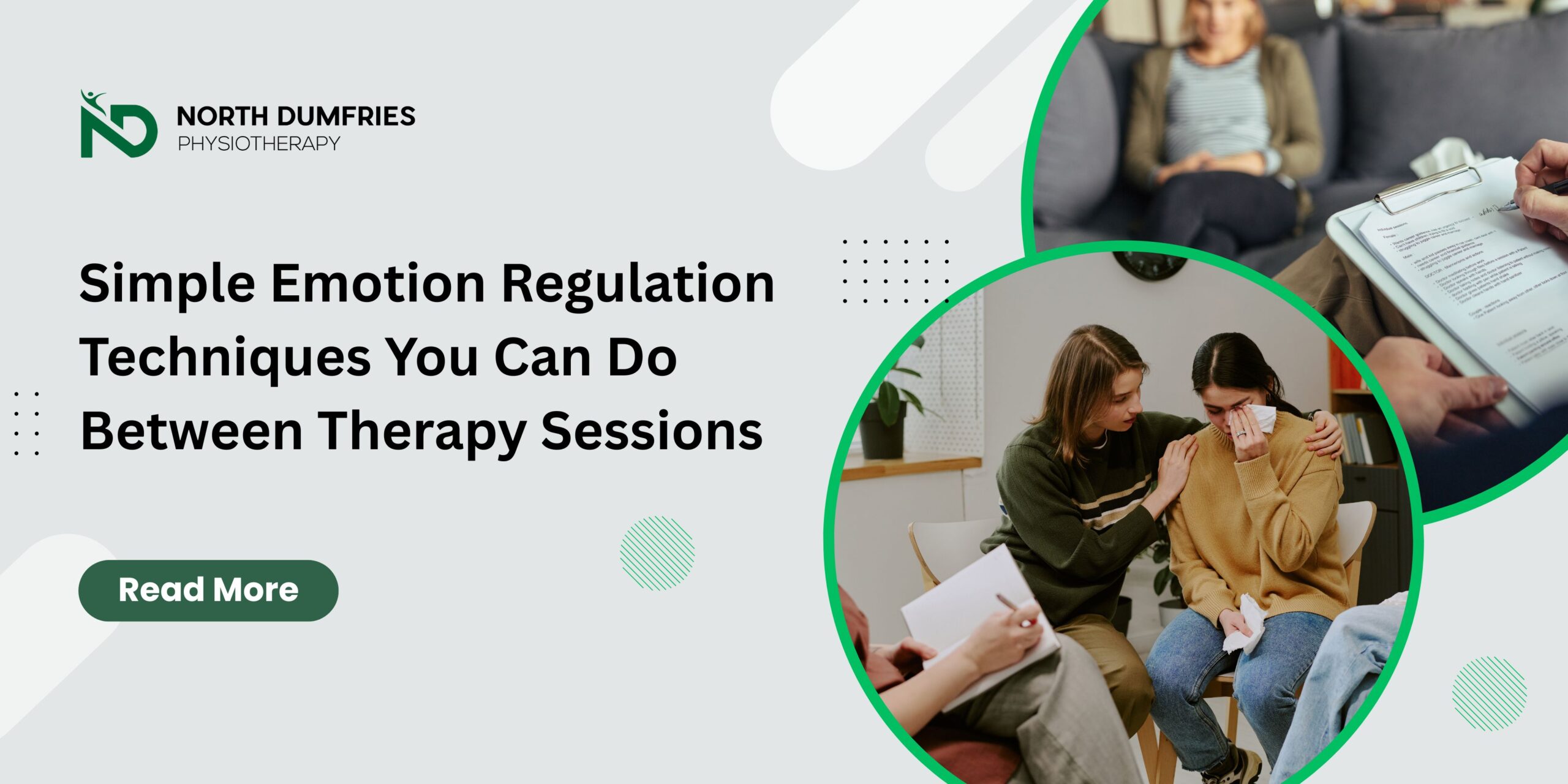Anyone can use emotion regulation techniques between therapy sessions to feel more balanced and in control of their feelings. These techniques help reduce stress and support your mental health every day, even when your therapist is not with you. Learning to manage your emotions on your own builds confidence and helps you face life’s ups and downs with strength. Whether you are new to therapy or just looking for simple ways to cope, these easy tools can guide you toward better emotional well-being.
Why Emotion Regulation Matters
Everyone faces tough feelings at times. Learning how to handle emotions can lead to better relationships, reduced stress, and more control over your day. Emotional regulation helps you bounce back from hard moments and grow stronger inside. In fact, studies show that people who use self-help emotional regulation are more likely to report higher life satisfaction and lower rates of anxiety.
What Are Simple Emotion Regulation Techniques?
Emotion regulation techniques include easy steps that help you notice, accept, and shift your mood. These management strategies do not require special tools or lots of time. Over 60% of therapy clients say using basic coping skills between therapy helps them stay focused on progress, even on difficult days.
Quick Breathing Exercises
Breathing is a simple way to calm the body and mind. One easy technique is the “4-7-8” breath. Inhale for four counts, hold the breath for seven counts, and exhale slowly for eight. Repeat three times. This is one of the best simple emotion regulation exercises for moments when you feel overwhelmed or worried.
Notice and Name Your Feelings
The first step is to notice your strong feelings. Say to yourself, “I feel nervous right now,” or “This anger is growing.” Naming emotions helps your brain start to calm down. Doctors call this labeling. It is one of the best ways to control your inner thoughts or feelings because it creates a space between emotion and reaction. People who regularly label their feelings report a 30% decrease in emotional outbursts at home and at school.
Mindful Moments for Emotional Calm
Mindfulness means paying attention to the present, even if emotions are strong. Try sitting with closed eyes and notice your breath or heart rate. You can try grounding by feeling your feet on the floor or noticing sounds in the room. These techniques to control emotions can turn a tough day around without any special equipment.
Simple Distraction Techniques
It is okay to take a break if emotions feel too much. Listen to music, walk outside, or focus on a fun hobby. Distraction is not about running away; it is about giving your mind space to reset. Younger readers and adults say these mental health coping techniques help them return to their feelings with more calm.
Keep a Mood Journal
Writing your feelings in a notebook can help you spot patterns and triggers. Try writing down your mood once a day with a few details about what made you feel that way. This exercise will give you ideas about how to handle similar situations in the future.
Self-Soothing for Stress Relief
Do something relaxing when feelings are overwhelming. Some ideas include taking a bath, hugging a pillow, or using a weighted blanket. Even soft lighting or a favorite scent can help. These techniques support your body so your mind can start to relax again.
Reach Out for Support When Needed
It is important to remember that some emotions may feel too powerful to handle alone. Counselling for emotional health is always available to provide guidance and support. Therapy is not just for emergency situations. It is a space for growth and learning new management skills between therapy sessions. Research shows that regular check-ins with a counselor can speed up emotional healing and improve overall mental wellness.
Attending therapy consistently helps you develop effective coping strategies to manage stress, anxiety, and depression. It also creates a safe place to express your feelings without judgment, building emotional strength over time. Therapy supports better communication, stronger relationships, and increased self-awareness. Sticking with your therapy appointments even when you feel better helps maintain progress and prevents setbacks.
Remember, reaching out for help is a sign of strength, not weakness. Professional support can guide you through tough moments and empower you to take control of your emotional health confidently.
How to Practice These Skills Daily
You don’t need to spend hours on emotional self-regulation tips. Instead, try adding one small technique to control emotions into your daily routine. Consistent practice helps these skills become natural and effective over time.
Practical Daily Tips for Emotion Regulation
- Set aside 5 minutes in the morning to name one emotion you are feeling. This builds awareness and acceptance.
- Take a few moments in the afternoon for a simple breathing exercise, like the “4-7-8 breath,” to reduce stress and clear your mind.
- Before bed, write a line in a journal about your mood or how you managed your emotions that day. This acts as a reflection and tracks progress.
- Use grounding exercises when you feel overwhelmed, such as noticing five things you can see or hear right now.
- Practice self-compassion by reminding yourself it is okay to have difficult emotions and you are doing your best.
- Engage in small acts of kindness or hobbies to uplift your mood and provide mindful distraction.
- Check in with your physical health: get enough sleep, eat balanced meals, and move your body to support emotional stability.
By weaving these small exercises throughout your day, you can build powerful handling skills between your therapy sessions and strengthen your emotional resilience.
When Should You Get More Help?
Reach out to a professional if you notice your feelings are stopping you from living life or if you are having trouble with work, school, or relationships. Counselling for psychological health provides safety, management techniques, and support you can trust.
FAQs
1. What are simple emotion regulation exercises I can try right away?
You can try grounding yourself by noticing your five senses, practicing deep breathing, or writing down your current feeling in a journal. These are great ways to manage your emotions quickly and safely.
2. How long does it take for emotion regulation techniques to work?
Some simple exercises work in a few minutes, like slow breathing or distraction. Others take time and daily practice, like journaling or learning mindfulness.
3. Can kids and teens use these tips?
Yes, these emotion management strategies work well for all ages. Kids can try naming feelings, drawing how they feel, or using breathing techniques for calm.
5. When should someone get counselling for emotional health?
If strong emotions make it hard to enjoy life, talk with a counselor. Professional advice gives you new coping techniques and helps you feel better safely.
Conclusion
Managing your emotions is a skill everyone can learn with practice. Using simple emotion regulation techniques helps you handle difficult feelings, build confidence, and enjoy a better quality of life. These strategies allow you to respond to stress calmly and keep your mental health balanced.
If you need additional help with emotional well-being counselling in Ontario, ND Physiotherapy is here to support you with expert guidance and counselling for emotional health. Start today because your mental wellness truly matters, and small steps can lead to years of emotional strength and well-being.








